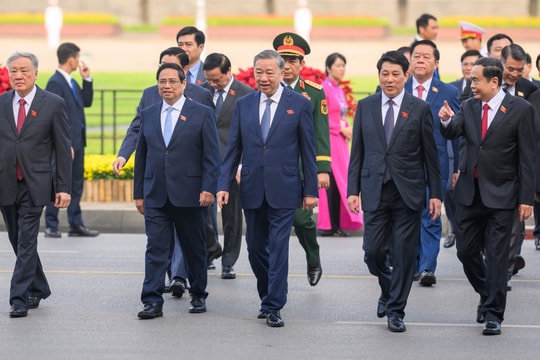Removing difficulties for micro-state-owned enterprises to convert to joint stock
(Baonghean.vn) - The process of deploying and implementing legal policies on management and use of state capital and assets in enterprises has encountered many shortcomings and difficulties due to their incompatibility with the actual situation of enterprises.
On the morning of January 12, the Provincial National Assembly Delegation had a working session with Nghe An Infrastructure Development Construction Investment Company Limited on the implementation of policies and laws on management and use of state capital and assets at enterprises and equitization of state-owned enterprises.
Nghe An Infrastructure Development Construction Investment Company Limited was converted from a public service unit to Nghe An Industrial Park Development Company. Before the conversion, the company was a public service unit, performing the tasks of managing and operating Nam Cam Industrial Park, compensating for site clearance of the Industrial Park and other tasks assigned by the Provincial People's Committee.
Reflecting to the Supervisory Delegation, Mr. Dinh Van Quang - Chairman of the company said that the unit's biggest difficulty was that at the time of converting the asset value from the public service unit to the public service unit, it was only 571,050,000 VND; there was no cash capital.
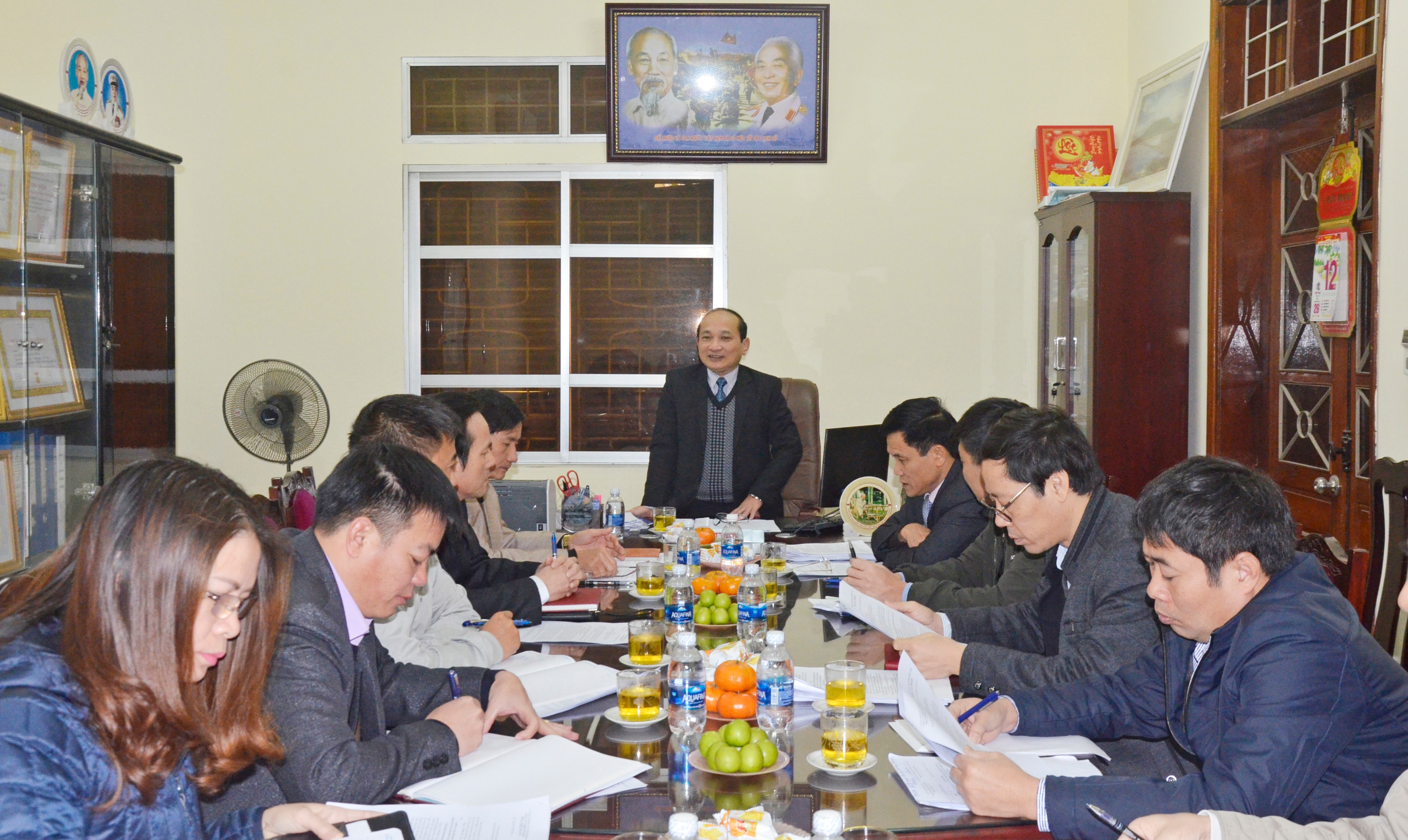 |
| Working session scene at. Photo: Thanh Le |
Meanwhile, the charter capital according to the approved project is 30,833,654,000 VND and the owner is obliged to provide additional capital as committed within no more than 36 months from the date the company is granted the Certificate of Business Registration, but in reality, after 3 years, the total capital of the unit is only 4.42 billion VND, accounting for 14.3% of the charter capital approved by the Provincial People's Committee.
According to Mr. Quang, in the process of deploying and implementing legal policies on management and use of state capital and assets in enterprises, there are many shortcomings and difficulties, such as the regulations on autonomy in production and business activities of state-owned enterprises are not close and suitable to the actual situation.
Mr. Quang cited that according to the regulations of the Provincial People's Committee, the Chairman of the Board of Directors of the company can only approve the project investment policy, bank loans, and loans from less than 50% of the company's charter capital. This regulation is not suitable for companies with charter capital of less than 10 billion VND that want to invest in a project or borrow money from the bank worth 5 billion VND or more, they must ask for the owner's policy. For a company with current equity of 4.4 billion VND, if it implements a project or borrows money worth more than 2.2 billion VND, it must also ask for the owner's opinion.
In addition, the regulation on the separation between business tasks and public service tasks of enterprises is not clear, so the company performs both public service tasks and construction production tasks but is not supported with funding to perform public service tasks for the enterprise.
“I suggest that the government, when converting public service units, needs to ensure initial capital. The province and the central government should have mechanisms to create jobs for units of this type, such as assigning them to carry out certain projects or assigning contractors to supplement the company’s capacity to continue bidding for other projects. If the company bids on its own, it will never win the bid,” Mr. Quang suggested.
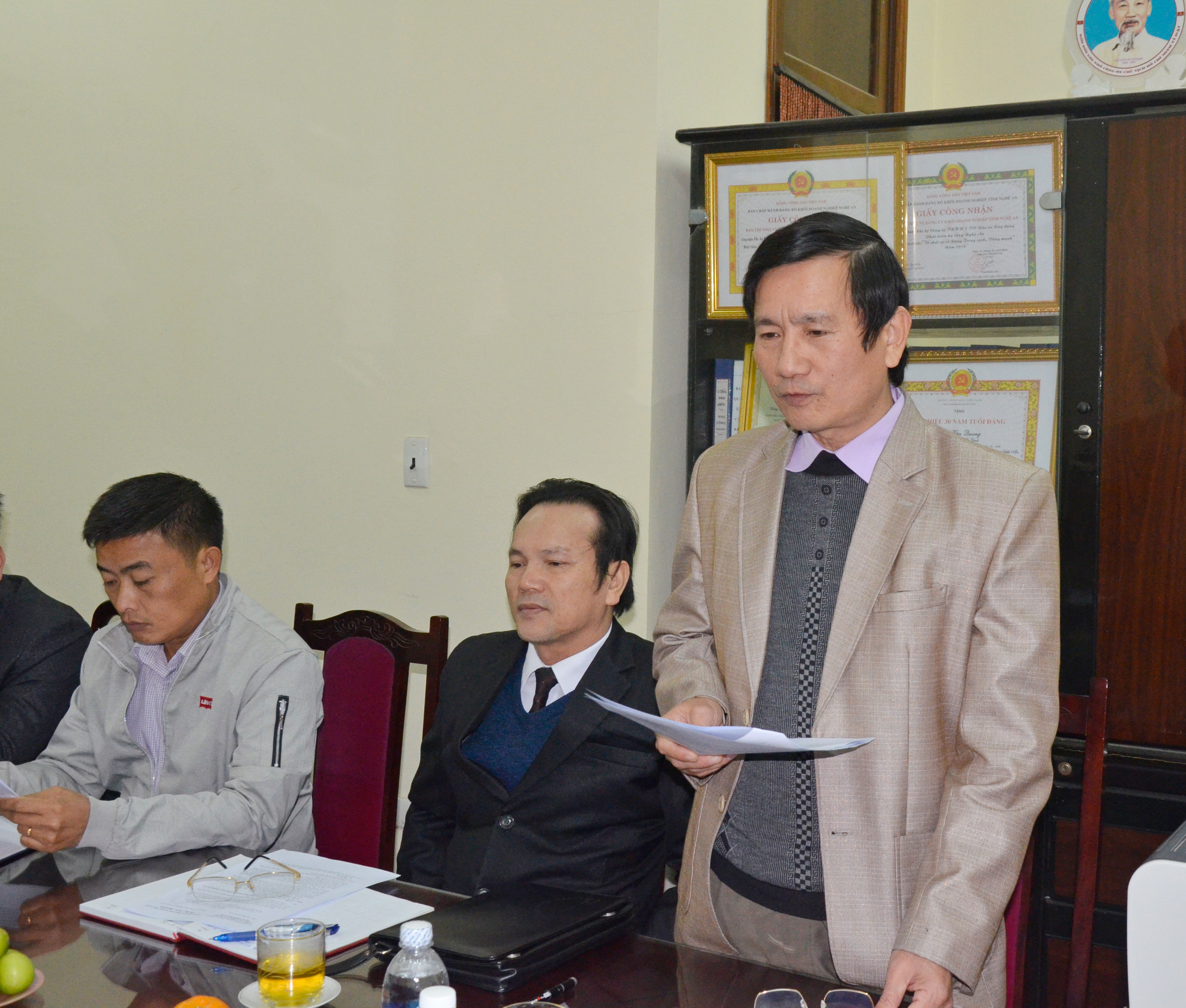 |
| Mr. Dinh Van Quang - Chairman of the company proposed that the government should have a mechanism to remove difficulties for micro-enterprises when converting to equitization. Photo: Thanh Le |
Responding to Mr. Dinh Van Quang's concerns, Mr. Nguyen Quang Thien - Head of the Economic Department of the Provincial People's Committee Office said: The state policy requires the conversion of the industrial park management unit into an enterprise type, stipulating that this model must have a charter capital of over 30 billion VND. Although the approved charter capital is later supplemented by the investor. However, each year the state budget allocates 5 billion VND to support capital for 22 state-owned enterprises to convert to an enterprise model, so each year the capital provided to the company is very little.
According to Mr. Phan Ngoc Chau - Head of the Department of Corporate Finance, Department of Finance: The company performs the function of building industrial park infrastructure but the industrial park has nothing to build. The company belongs to the model of small and micro enterprises, so business operations are extremely difficult. Operations are constrained, the state needs to "untie" to increase the unit's initiative in production management.
In addition, the company is in the process of equitizing the enterprise but with the micro-enterprise model, if it is converted to equitization, the apparatus must have a director and a chairman of the Board of Directors. This management model is applied as a Company, which is unreasonable. "The Government should base on the scale to regulate and should not impose on the organizational structure. The National Assembly and the Government need to study and have a separate mechanism for micro-enterprises that are converted to equitization from state-owned service units" - Mr. Phan Ngoc Chau proposed.
The representative of the Department of Finance said that the issue of equitization is that the capital of the unit is too small, other investors are willing to buy back the shares of the unit. This requires the company itself to propose an operating model that both divests state capital and issues additional capital to increase charter capital to develop well through equitization activities.
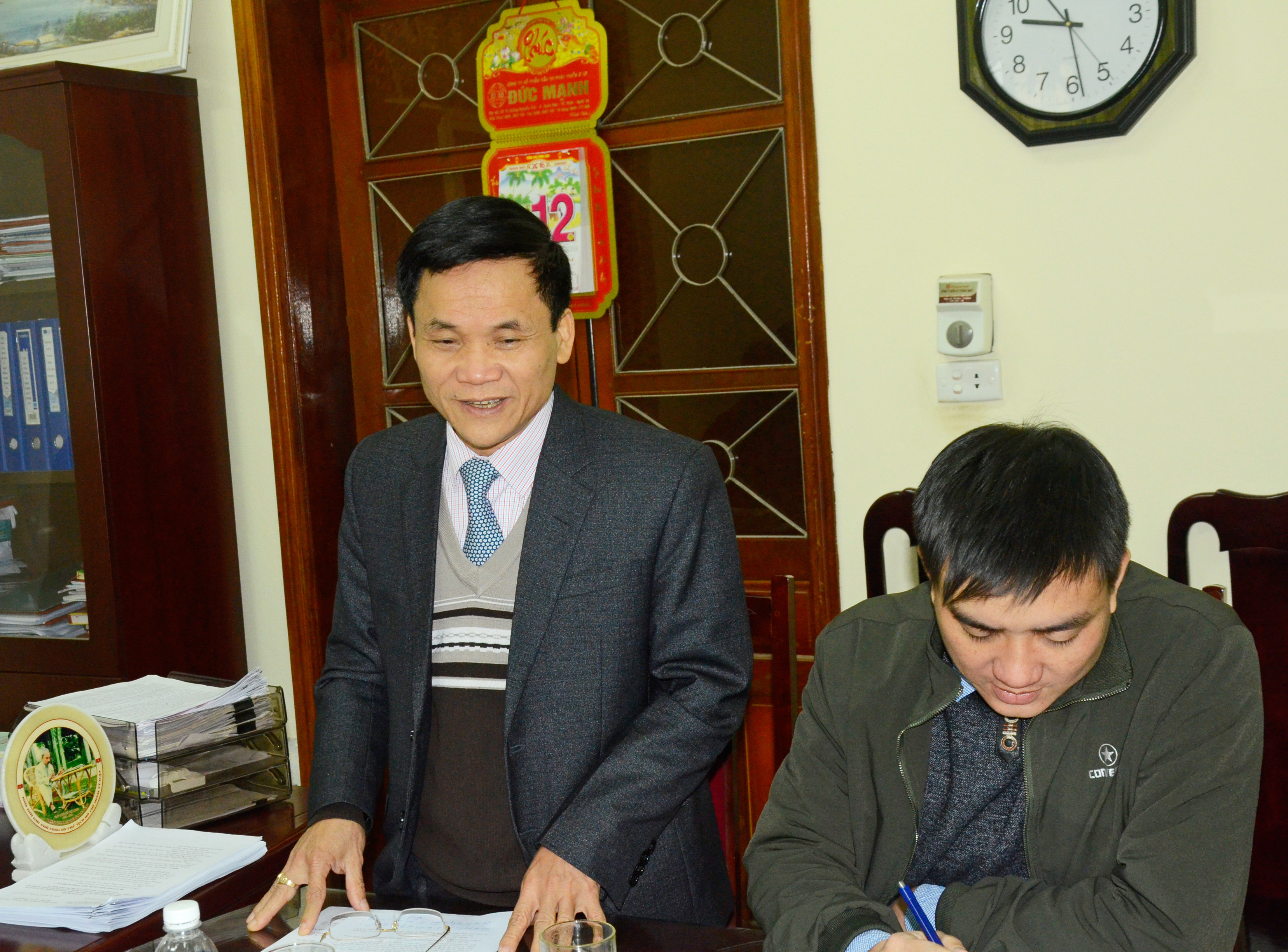 |
| Mr. Tran Van Mao - Deputy Head of the Provincial National Assembly Delegation spoke at the meeting. Photo: Thanh Le |
Sharing the company's difficulties, Mr. Nguyen Thanh Hien - Deputy Head of the Provincial National Assembly Delegation, Head of the Supervisory Delegation said that based on the actual situation of the unit, the delegation will synthesize recommendations to the province, the government and the National Assembly to amend and supplement the mechanisms and policies for enterprises after equitization to closely match the actual situation.
Mr. Hien suggested that during the preparation for equitization, the company should continue to study other models in the country to choose the appropriate model and steps; gradually remove difficulties, promote public service units associated with the functions of industrial parks. The unit should proactively approach service activities in industrial parks to increase revenue for the company.

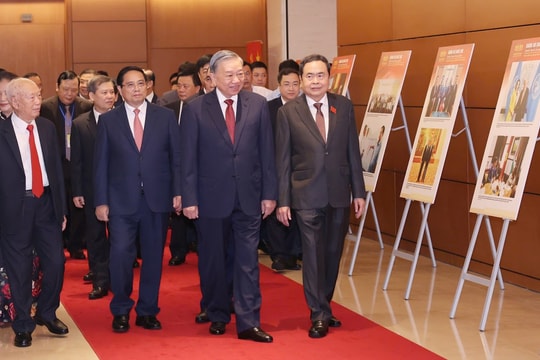
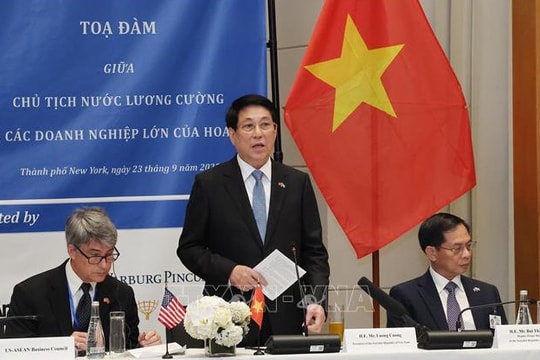
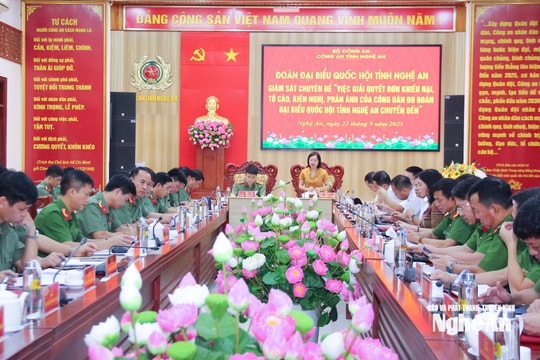
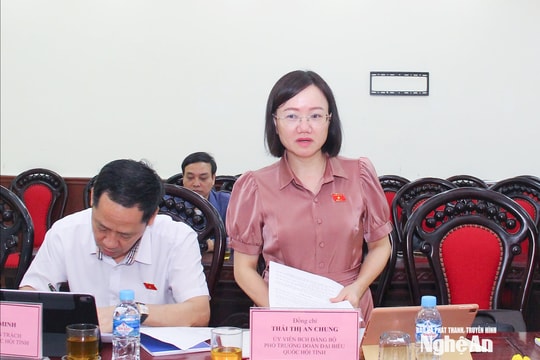
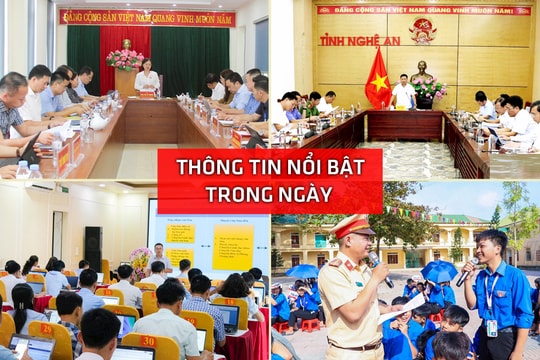
.jpg)
